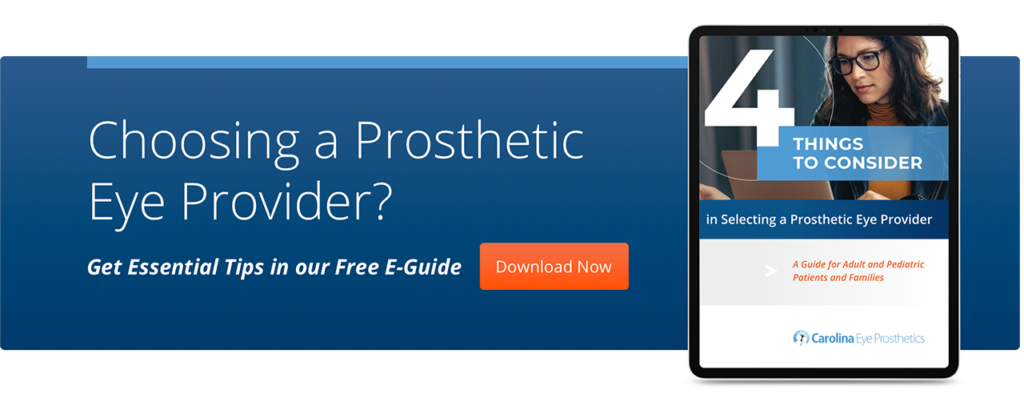Patient Care for Pediatric Eye Loss: How to Support the Family
As a provider, you see firsthand the devastating effects that eye loss can have on pediatric patients and their families. When a child experiences trauma, their loved ones try to make sense of the situation, hoping that they can find ways to make things better for their precious child. Hopes and dreams are at stake — and as a key part of your patient’s care team, you recognize the importance of giving the right kind of support.
What are some practical ways to help your patient and their parents, grandparents, or other family members during this difficult season? Below, explore the three ways you can care and connect with your patients and their loved ones.

Stay present in moments where empathy is most needed.
It can be helpful to be mindful of when patients and their families need your empathy the most. Are you about to deliver life-changing news? Is something not going the way you’d hoped for your patient? When it comes to pediatric vision loss, you recognize that tough provider-parent conversations are inevitable.
As your patient and their loved ones experience anger or sadness, you can stay calm and present while being considerate with your words. You know that as a provider, it’s possible that families might respond to difficult news with blame-shifting or hurtful comments. This initial response is totally normal. Understanding that it’s all part of the initial shock of receiving news will help you stay grounded and supportive.

Give them an opportunity to speak.
You understand the value of letting your patients and their families express themselves freely. For patients, healthcare is more than receiving diagnoses and recommendations for treatment. Although these are crucial parts of the process, you know that allowing your patient and their loved ones room to talk will provide critical insights on the kind of support that is most beneficial.
If a patient shows concerns about mobility issues after an eye loss, that could be an insight to refer to a rehabilitation specialist. If a patient’s family wants to seek a prosthesis as a result of pediatric vision problems, that could point you to refer to an ocularist.
Allowing the patient or family to speak and waiting for cues that indicate that they’re finished expressing themselves will lead you to recommendations that best fit their needs.
Share recommendations on areas they’ve expressed concerns.
As a provider, you know that a thorough assessment of your patient’s situation can help give the best referrals and treatment. By listening first and seriously considering their insights, you can start sharing a plan moving forward.
For pediatric eye loss, some areas to explore are:
- Occupational therapy. Families worry about how their children will adjust after an eye loss. Occupational therapy services can equip your pediatric patient with the skills and tools needed to do self-care tasks, read, write, and other activities to function well in their daily lives.
- Prosthetic eye services. Loved ones can also express concerns about their desire to give their child’s eye an even appearance. For conditions such as eye trauma, microphthalmia, and anophthalmia for pediatric patients, you can provide recommendations to get custom prosthetic eyes — one that distinctly matches and has all the unique details of their working eye.
- Family counseling. Many children, including their parents, commonly experience grief after a difficult diagnosis. They may need help navigating the ebb and flow of thoughts and feelings after an eye loss. Counseling can benefit patients and their families, allowing them to receive emotional support on their path to healing.
Discover how your patient can gain confidence with a prosthetic eye.
At Carolina Eye Prosthetics, we want to help you help your patients. Our goal is to make every client experience comfortable and fulfilling. Learn how you can refer a patient to us by calling (877)763-9393 or sending us an email.
